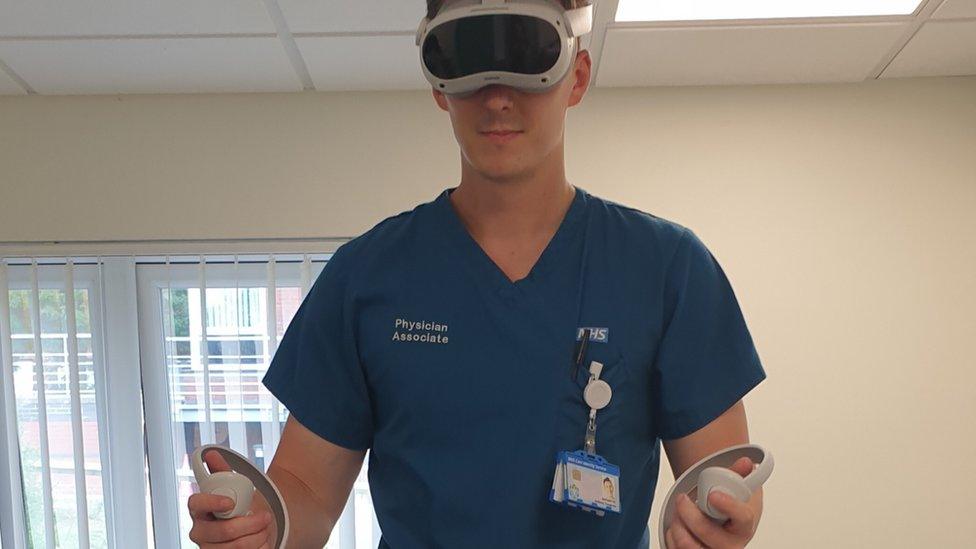New tech removes need for cancer patient tattoos
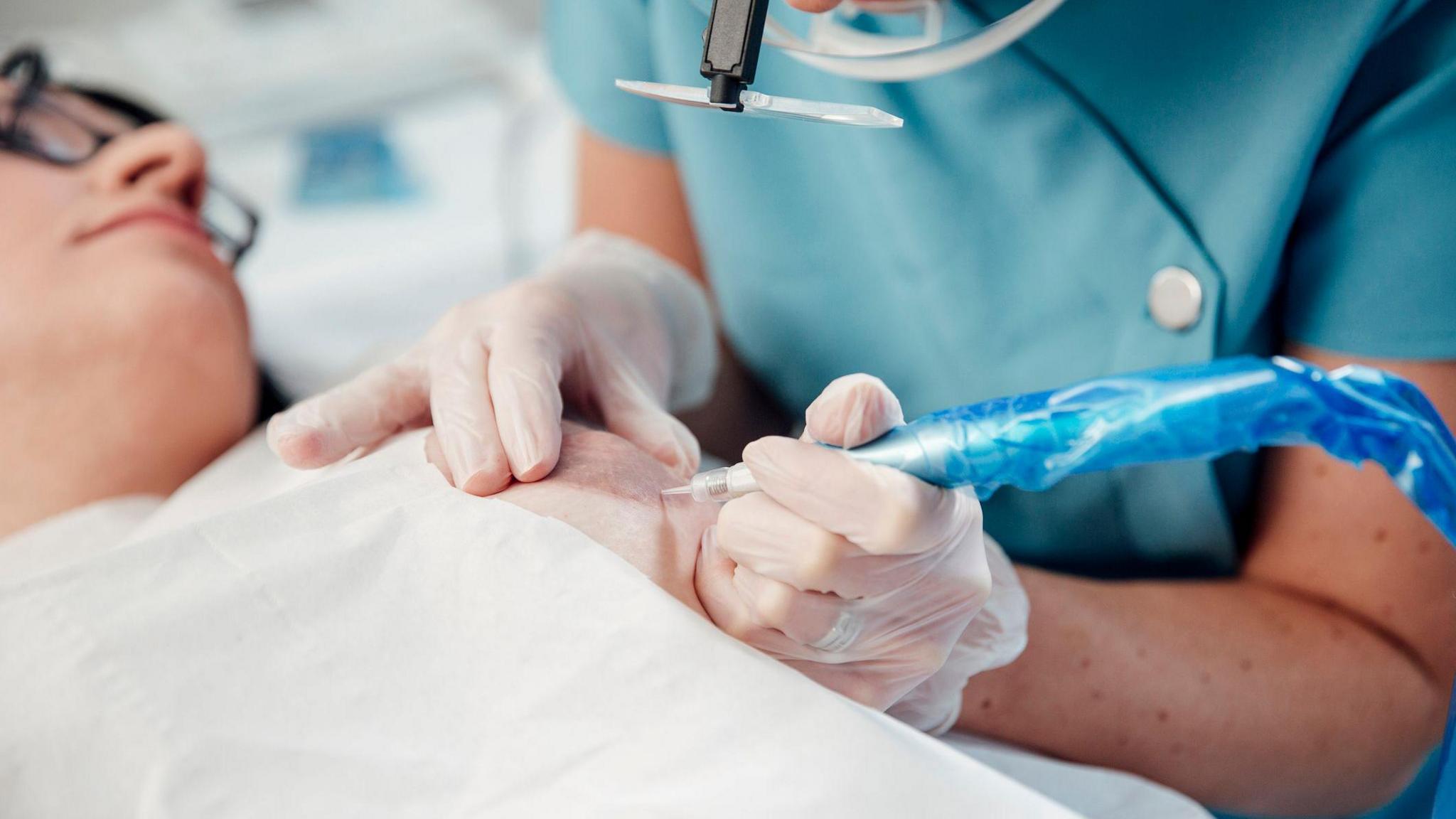
Surface Guided Radiotherapy means some cancer patients will no longer need tattoos
- Published
Cancer patients at Hull's Castle Hill Hospital will no longer need permanent tattoo markings to guide their radiotherapy treatment thanks to new technology.
Surface Guided Radiotherapy (SGRT) is being introduced at the Queen’s Centre at a cost of £1.4m.
The NHS Humber Health Partnership said it would enable radiographers to deliver treatment more efficiently.
It added that tattoos, currently marked on patients’ skin during a CT planning scan as a guide to deliver radiation to the correct part of the body, would no longer be required for most patients.
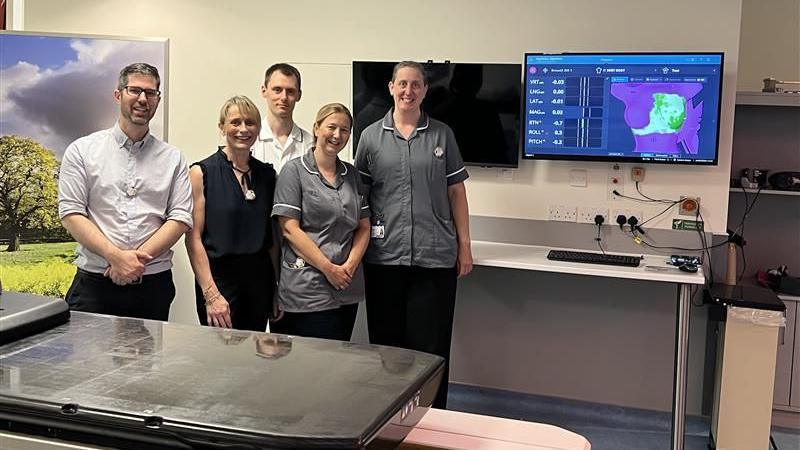
L to R: Castle Hill hospital's radiotherapy team Carl Horsfield, Nikki Mullins, Daniel West, Mairi Clark and Vic Sykes will use the new technology
Nikki Mullins, a specialist in radiotherapy physics, said: “This innovative system will continuously monitor patients with high-tech infra-red cameras during treatment, ensuring sub-millimetre accuracy.
“It will enable us to deliver treatment more efficiently and remove the need for most patients to be tattooed on their skin, taking away that permanent reminder of their cancer treatment.”
Radiotherapy treatment is high-dose radiation delivered to the affected area of a patient’s body with precision and accuracy under one millimetre, protecting surrounding tissue and organs.
Radiotherapy teams using SGRT receive a 3D image of the patient lying on the Linear Accelerator (Linac) couch and then compare it to the radiotherapy CT planning scan to manoeuvre patients into the identical position to receive treatment.
Victoria Sykes, Macmillan advanced practitioner, said: “The new technology enables patients to be positioned more quickly, with less manual positioning and movement required, so it’s more comfortable for the patient.”
Reduced appointment times
SGRT is being introduced to treat patients with breast cancer first, with plans to offer it to those with different forms of cancer by the end of the year.
The system has been fitted on four of the six Linacs at the Queen’s Centre and will be rolled out to the remaining two machines in the coming months, the NHS said.
It added appointment times were likely to be reduced because of the efficiency of the new SGRT system.
Follow BBC East Yorkshire on Facebook, external, X (formerly Twitter), external and Instagram, external. Send your story ideas to eastyorkslincs.news@bbc.co.uk, external
Related topics
- Published8 August 2024
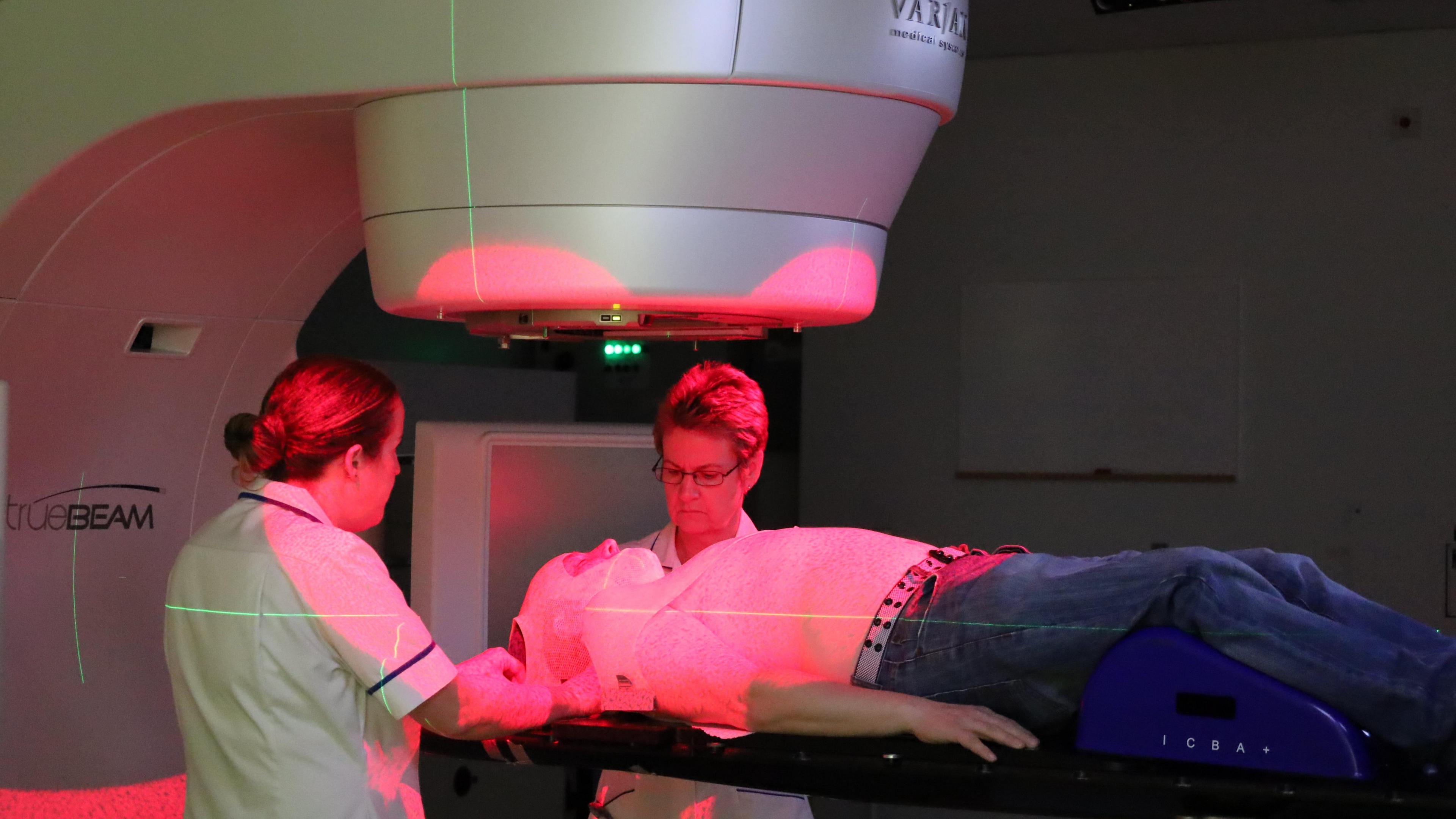
- Published7 February 2024
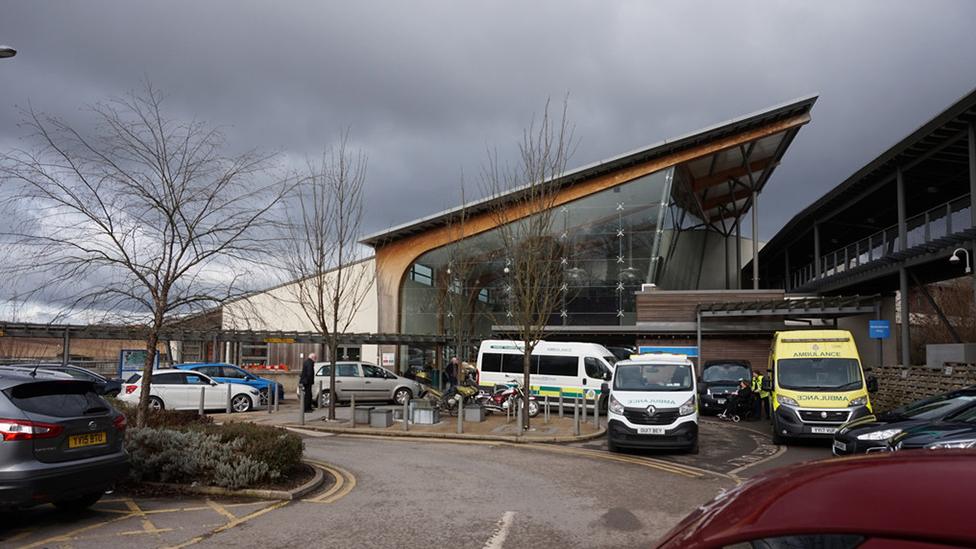
- Published5 October 2023
